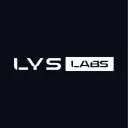 Lido is a liquid staking solution for blockchains. It enables users to stake their ETH and other proof-of-stake assets without locking their assets or maintaining infrastructure, while participating in on-chain activities such as lending.
Lido
|
DeFi、LSD
| | Liquid staking solution |  2K
2K
|  116
116
|
 Pendle is a yield trading protocol that allows users to tokenize and trade future yields by leveraging top yield-generating protocols such as Aave, Compound, and Wonderland. Similar to stripped bonds in traditional finance, Pendle splits yield-bearing assets into tokenized ownership (zero-coupon bonds) and yield components (coupons), enabling innovative yield trading opportunities.
Pendle
|
DeFi、Derivatives、Yield Tokenization、LSD
| | Yield trading protocol |  1K
1K
|  115
115
|
 Solayer is building infiniSVM to scale Solana, a hardware-accelerated SVM, scaled infinitely with multi-execution cluster architecture connected via SDN and RDMA to achieve 100 Gbps while maintaining an atomic state.
Solayer
|
Infra、Layer1、LSD
| | The hardware-accelerated SVM blockchain |  918
918
|  108
108
|
 Alluvial is a enterprise-grade liquid staking protocol that allows tokenholders to receive rewards from their staked digital assets, while ensuring that their digital assets are freely tradeable and usable in other DeFi applications. Alluvial's API-first integration makes it easy and efficient for digital asset exchanges, custodians, and other enterprises to integrate Liquid Collective's liquid staking capabilities into their existing product experiences.
Alluvial
|
DeFi、LSD、Institutional DeFi
| | Enterprise-grade liquid staking protocols |  356
356
|  107
107
|
 EigenCloud (formerly EigenLayer) is a verifiable cloud service platform that provides tools for building verifiable applications and services. Combining EigenDA (data availability), EigenVerify (dispute resolution) and EigenCompute (computation), it supports trust and transparency of on-chain and off-chain applications, and developers can build applications such as decentralized markets, on-chain insurance and verifiable AI.
EigenCloud
|
Infra、Modular、Restaking、LSD、Cloud Computing
| | Verifiable Cloud Service Platform |  2K
2K
|  100
100
|
 Infrared Finance is the flagship application of the Proof of Liquidity consensus mechanism pioneered by Berachain. The application reimagines liquid staking in the context of the three-token architecture and the unique soulbound elements of BGT. The protocol maximizes value for stakeholders via social aggregation of BGT through its infrastructure level PoL vaults and iBGT liquid staked derivative.
Infrared
|
DeFi、LSD
| | Your portal to the Berachain ecosystem |  439
439
|  89
89
|
 Haedal is a liquid staking protocol built on Sui that allows anyone to stake their SUI tokens to contribute to governance and decentralisation of the Sui blockchain. In the meantime, users will get haSUI in return so that they can continue to participate in DeFi activities to earn additional yields.
Haedal
|
DeFi、LSD
| | Liquid staking protocol built on Sui |  349
349
|  88
88
|
 Stakestone is a full-chain liquidity infrastructure. Different from POS staking pool and restaking pool protocols, the platform is more focused on building liquidity distribution for ETH, BTC and stablecoin. Whether it is helping assets to generate interest through dynamically adjusted underlying strategies or providing full-chain liquidity for multi-chain ecosystems.
StakeStone
|
DeFi、LSD
| | Liquidity staking derivatives |  714
714
|  87
87
|
 Kinetiq is a liquidity staking protocol on Hyperliquid aims to establish kHYPE as the pioneering staking pool on Hyperliquid, utilizing StakeHub as its operating system.
Kinetiq
|
DeFi、LSD
| | Liquid Staking Protocol on Hyperliquid |  408
408
|  83
83
|
 Treehouse is a decentralized application that introduces Treehouse Assets (tAssets) and Decentralized Offered Rates (DOR), new primitives that enable fixed income products in digital assets. Users who deposit ETH or liquid staking tokens (LST) into the protocol receive tETH and contribute to the convergence of fragmented on-chain ETH rates. Previously, Treehouse was a digital asset portfolio management and market intelligence platform.
TreeHouse Finance
|
DeFi、LSD
| | The Decentralized Fixed Income Layer |  554
554
|  83
83
|
 aPriori is an MEV infrastructure and liquid staking protocol, designed for the parallel execution era and natively built on Monad.
aPriori
|
DeFi、LSD、MEV
| | MEV infrastructure and liquid staking protocol |  653
653
|  79
79
|
 StaFi Protocol is the first decentralized protocol to unlock the liquidity of staked assets. StaFi aims to solve the contradiction between Mainnet security and token liquidity in PoS consensus. Token holders can stake through staking contracts built in the StaFi Protocol, and then receive alternative tokens (such as rDOT, rATOM, rBNB, rSOL, etc.). These rTokens are tradeable and they can also receive staking rewards from the original chain.
StaFi
|
DeFi、LSD
| | Liquid Staking for All PoS Chains |  317
317
|  79
79
|
 Ether.Fi is a liquid staking protocol that allows stakers to retain control of their keys while delegating staking to node operators and earning rewards. Ethereum stakers who use Ether.Fi are also granted an NFT representation of every validator generated. These NFTs enable the storage of metadata, which Ether.Fi hopes developers will use to create additional staking infrastructure.
Ether.Fi
|
DeFi、Restaking、LSD
| | Decentralized staking protocol |  1K
1K
|  78
78
|
 AltLayer is an open and decentralised protocol for rollups. It brings together a novel idea of Restaked rollup which takes existing rollups (spun from any rollup stack such as OP Stack, Arbitrum Orbit, ZKStack, Polygon CDK, etc.) and provides them with enhanced security, decentralisation, interoperability and crypto-economic fast finality.
AltLayer
|
Infra、Modular、Restaking、LSD
| | Execution and elastic scaling layer as blockchain |  1K
1K
|  74
74
|
 PumpBTC serves as a Liquid Staking Solution for Babylon. PumpBTC aims to help BTC holders maximize yields through Babylon's staking - essentially rebuilding $WBTC/$BTCB/$FBTC with native yield.
PumpBTC
|
DeFi、LSD
| | Liquid staking protocol on Babylon |  436
436
|  72
72
|
 Jito Labs builds high-performance MEV infrastructure for Solana. It aims to make Solana more efficient and minimize the negative impact of MEV on users.
Jito
|
DeFi、LSD、MEV
| | MEV infrastructure for Solana |  1K
1K
|  72
72
|
 Renzo is a restaking protocol based on EigenLayer. Renzo abstracts the complex process of re-staking for end users, and stakers do not have to worry about the active selection and management of operators and reward strategies. ezETH is Renzo’s liquid, heavily-collateralized token that automatically captures rewards and ensures liquidity. ezETH allows users to participate in DeFi while retaining re-collateralization rewards.
Renzo Protocol
|
DeFi、Restaking、LSD
| | Restaking Protocol based on EigenLayer |  899
899
|  70
70
|
 Sanctum is a new primitive built on Solana to power liquid staking and bring Solana into an infinite-LST future. Sanctum enables users that stake SOL natively or with a liquid staking token (LST) to tap into a powerful unified liquidity layer
Sanctum
|
DeFi、LSD
| | Solana 's LSD Protocol |  677
677
|  66
66
|
 Lair Finance is a Web3 platform offering decentralized finance (DeFi) earning opportunities. With its unique tokenomics and staking mechanism, users can participate in liquidity provision and asset growth programs on the platform, earning more KAIA tokens and achieving sustainable financial returns.
Lair Finance
|
DeFi、LSD
| | Decentralized liquid staking on Kaia |  164
164
|  62
62
|
 MilkyWay is a liquid staking solution for the Celestia ecosystem, it will initially be deployed and operated on Osmosis. The long term plan is to migrate to Celestia's rollkit for native milkTIA issuance. When users liquid stake their TIA coins with MilkyWay, they receive an on-chain representation of their TIA staking position, known as milkTIA. This empowers Celestia token holders to access liquidity for their staked assets, enabling trading or their use as collateral in various DeFi products.
MilkyWay
|
DeFi、LSD
| | Liquid staking solution for Celestia |  467
467
|  60
60
|
 Babylon is a layer 1 blockchain founded by Professor David Tse from Stanford University. The project's mission is to bring Bitcoin's unparalleled security to all PoS blockchains without any extra energy cost. The team consists of Stanford researchers and experienced developers, as well as seasoned business advisors.
Babylon
|
Infra、LSD
| | Bitcoin Staking Protocol |  1K
1K
|  60
60
|
 SatLayer is a Bitcoin restaking platform. With SatLayer, users can now restake their Bitcoin and Bitcoin liquid-staking tokens from platforms like Solv Protocol, Lombard, Bedrock, pStake and PumpBTC that are used to secure Bitcoin Validated Service (BVS). to secure any type of dApp or protocol as an Bitcoin Validated Service (BVS), fundamentally upgrading security for all of crypto
SatLayer
|
DeFi、Restaking、LSD
| | Bitcoin restaking platform |  379
379
|  59
59
|
 LYS Labs is designed to streamline and optimize the process of liquid staking and restaking in the cryptocurrency domain. Central to its innovation is the Liquidity Modality Derivative (LMD), represented by a new financial instrument built on Ethereum - whyETH. This protocol sets itself apart by integrating with leading staking providers and restaking platforms, with the robust backing of the EigenLayer restaking protocol.
LYS Labs
|
DeFi、Restaking、LSD
| | Liquidity staking optimization protocol |  132
132
|  55
55
|
 Puffer is a decentralized native Liquid Restaking Protocol (nLRP) built on EigenLayer. It introduces native Liquid Restaking Tokens (nLRTs) that accrue PoS and restaking rewards. Nodes within the protocol leverage Puffer’s anti-slashing technology to enjoy reduced risk and increased capital efficiency, while supercharging their rewards through native restaking. Puffer's core mission is to maintain the "trusted neutrality" of Ethereum and enhance and maintain the decentralization of Ethereum.
Puffer Finance
|
DeFi、Restaking、LSD
| | Anti-Slashing Liquid Staking |  1K
1K
|  55
55
|
 Bedrock is the multi-asset liquid restaking protocol. Bedrock delivers restaking yields and institutional-grade security to the community through uniBTC (based on Babylon), uniETH (based on Eigenlayer), uniIOTX (based on IoTeX), and brBTC (built on composite restaking protocols such as Babylon, Kernel, Symbiotic, Pell, etc.).
Bedrock
|
DeFi、Restaking、LSD
| | Multiple asset liquid restaking protocol |  537
537
|  53
53
|
 MEV protocol is a platform for Liquid Staking Receipt (LSR) management, designed to optimize Ethereum value through efficient staking and reward distribution. This contract leverages multiple core modules to achieve its objectives, including admin control, staking management, share vault updates, ERC4626 integration, withdrawal queues and omni-chain tokens.
MEV Protocol
|
DeFi、LSD
| | Liquid staking protocol |  112
112
|  52
52
|
 Amnis Finance is a liquid staking protocol that empowers users to effortlessly maximize returns on their APT tokens while unlocking their liquidity.
Amnis Finance
|
DeFi、LSD
| | Liquid staking protocol |  217
217
|  52
52
|
 Obol Network is a distributed consensus protocol and ecosystem for POS Ethereum, with a mission to eliminate single points of technical failure risks on Ethereum through Distributed Validator Technology (DVT). Obol, as a layer, focuses on enabling main chain staking to scale, providing permissionless access to Distributed Validators.
Obol Network
|
DeFi、LSD
| | Ethereum POS consensus protocol and ecosystem |  758
758
|  52
52
|
 Nexton is TON's staking protocol, designed to maximize and optimize user benefits.
Nexton
|
DeFi、LSD
| | Restaking hub for TON Ecosystem |  44
44
|  50
50
|
 ssv.network is a decentralized staking infrastructure that enables easy and scalable access to decentralized ETH staking for everyone.
ssv.network
|
DeFi、LSD
| | Decentralized staking infrastructure |  622
622
|  50
50
|



















































































